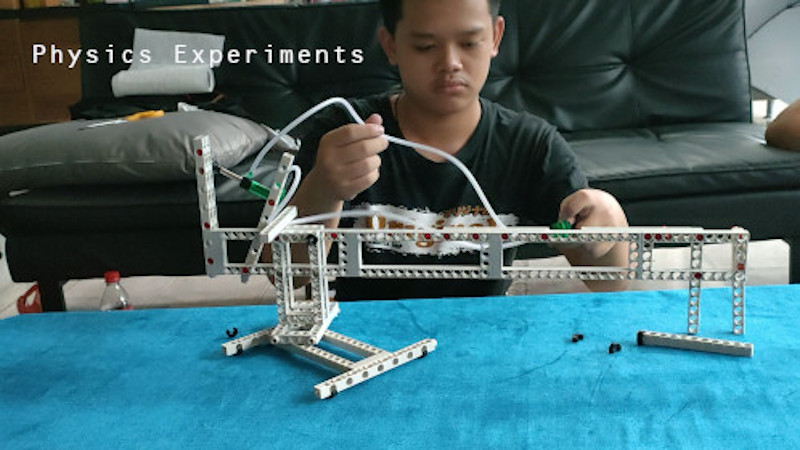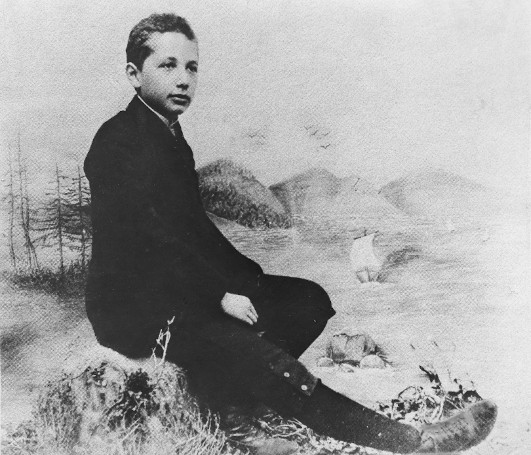Fresh perspective needed
September 24, 2023 by Eric Bradley
Thailand's technology education system is falling behind
that of other developed nations, but the real issue
isn't the students; it's a lingering perception among
education officials that Thai students lack capacity for
tech excellence.
In truth, your students may be more capable than you
think. Are we overlooking the potential that could give
Thais a more active role in the tech revolution?
 A student constructs a working model of a hydraulic powered crane.
A student constructs a working model of a hydraulic powered crane.
Have faith in them so you can give them faith
As we've traveled around the country, it has been
invigorating to see the impressive array of talent on
display from Thai students.
Obviously in the more affluent schools it was easier
for talented students to explore their potential. But
what we have found is that an even more important factor
than wealth is a supportive educational environment
where students are encouraged to believe in their
abilities.
Therefore we want to encourage all Thai educators to
stop limiting the potential of their students. Be open
minded to the possibility that students could be more
talented and capable than their test scores may
indicate.
In fact, test scores don't tell us everything we need to
know about student abilities. They simply indicate to us
how well a student is engaging with the official
curriculum. If the curriculum is not aligned well with
a student's interests and they don't feel a strong sense
of motivation, even a very talented student might not
score well on standardized tests.
A personal case study
One of the most talented students I have personally
taught had a history of consistently bad test scores. If
I had been the kind of person to simply accept this
prima facie evidence, she would have faced a
difficult and uncertain future.
Luckily for her, I'm the kind of person where if I am
presented with a problem situation, it makes me want to
dig deeper and find the causes of the problem. In this
case, I found that the student was being bullied by her
peers, lacked a supportive educational environment, and
received little parental attention at home.
Ordinarily this would represent a fatal combination of
warning signs. This perfect trifecta of negativity had
stripped her of almost every vestige of confidence and
motivation. At that time she regarded herself as, in her
own words, "a dummy."
Over the next 12 months I helped her overcome the fear
and shame that were holding her back. I had the
privilege to watch her transform herself from an
introverted teenager to a confident young lady ready to
face the world.
In truth, she had always possessed an abundance of
talent as an artist and designer, but this is not an
area of study that standardized tests aim to find
student ability.
Today this young lady is training to be a flight
instructor and has mastered a diversity of subjects
including English, physics, meteorology, geography, and
navigation. Fields of study that previous teachers had
already concluded she had no hope of learning.
This was not an instant transformation. It didn't happen
without an abundance of tears and tantrums. But once she
was inspired with the motivation to learn and keep
improving, it helped her believe in herself, and gave
her confidence to keep going even when faced with
challenging situations.
A lesson for teachers
The above story is entirely true. It is just one example
among dozens of similar stories that I have personally
encountered or witnessed where students actually had
potential they were unaware of and had somehow fallen
through the cracks without being noticed.
One of the important things I did was to allow her to
make her own mistakes. Instead of castigating her for
these mistakes, I encouraged her to think about the
problem and look for the solution. Only when she was
too paralyzed by fear of giving a wrong answer would I
step in and provide the answer. Immediately after the
answer was provided, it was evident that she had
already guessed correctly, but was afraid to say
anything in case her answer was wrong.
This clearly shows the error of taking a punitive
approach in teaching. We must allow children to make
mistakes and then encourage and support them to find the
right answer through exploration and discovery.
Ridiculing or otherwise punishing students for giving
wrong answers will only cause them to want to withdraw,
and they will learn nothing.
When students are punished, especially when the
punishment includes humiliation in front of their
classmates, the student will focus more of their
attention on the punishment than on the content of the
lesson. This can leave them feeling afraid to try again
in the future.
As a teacher, hopefully you care about the well-being
of your students. I hope you will consider giving any
"difficult students" you encounter some
benefit of the doubt. Most often you will find it is not
a lack of ability that is holding them back, but a lack
of confidence. This is something that can almost always
be overcome if you can find a way to connect with the
student and motivate them to try their best.
If this article failed to resonate with you, I ask you
to consider the young boy in this photo:
 Photo by Ferdinand Schmutzer, 1893.
Photo by Ferdinand Schmutzer, 1893.
The boy in the photograph failed the general education
section of his standardized test that would have allowed
him to attend university.
Only his exceptional scores in physics and mathematics
allowed him a second chance, and this was rarely awarded
at the time of his exam.
This young man was Albert Einstein, who would one day
become recognized as one of the greatest minds in
science, something only possible due to second chances.
 Albert Einstein in 1947. Photo by Orren Jack Turner.
Albert Einstein in 1947. Photo by Orren Jack Turner.